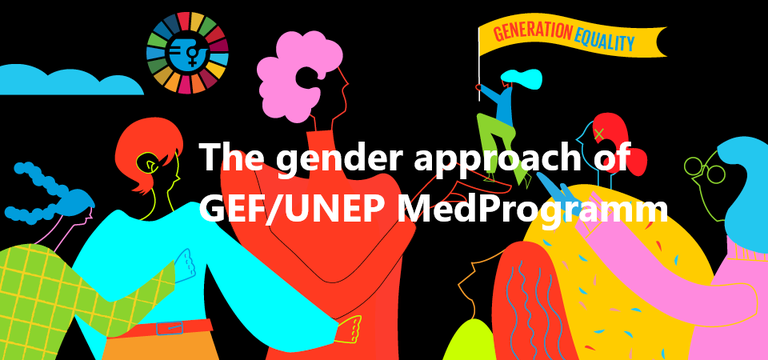Women agents of change in coastal management
In the implementation of the MedProgramme, UNEP / MAP recognizes that environmental degradation and climate change have a gender-differentiated impact and tend to disproportionately affect women due to persistent inequalities.
Gender-based inequalities have been identified and analyzed within the framework of the MedProgramme. Gender barriers that threaten to undermine equitable outcomes of environmental sustainable development have been documented. The list includes women's limited access to land, information, markets, technology and natural resources; their lack of participation in decision-making; and the double burden of responsibilities inside and outside the household. Corrective measures have been designed to help overcome these obstacles.
The MedProgramme was designed to make women agents of change going beyond the strict notion of vulnerability and capitalizing on their knowledge, experience and skills in the coastal environment.
One of the most innovative elements of the MedProgramme is the adoption and application of its Gender Mainstreaming Strategy (GMS). The GMS, a key pillar of the program, describes specific gender activities to be undertaken within a set timeframe, with objectives, budget and responsibilities assigned to implementing partners and relevant national partners.
The gender-related activities of the MedProgramme aim to address gender inequalities in participating countries, strengthen the capacities of implementing agencies and national partners to carry out project activities that benefit both women and men.
Promoting the development of gender-responsive and gender-aware policy-making is at the heart of the MedProgramme. This is crucial to induce change, to take advantage of opportunities for environmental and social co-benefits (including gender co-benefits).
Capacity building will be deployed in partner countries with the aim of strengthening the key role of women and livelihood opportunities in coastal areas, by encouraging their participation in the governance and decision-making structures of marine protected areas, by identifying and enforcing addressing gender aspects occurring in the wastewater sector and undertaking gender-sensitive climate risk assessments to strengthen the resilience of women and men equally. The update of the 2005 baseline regarding transboundary issues will, for the first time, include a gender assessment.

